

NA6/NA6a PSU for
KwEa/LwEa (Ln 27466)
Gerät Nr. 124-4503A
NA6a is also mentioned on page e96
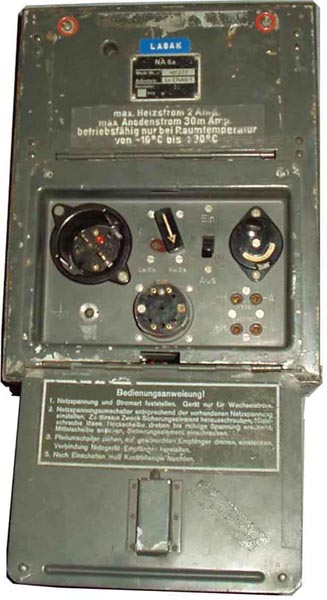
NA6a (wreck).
Output voltages: +100V 20mA, +2V 2,2A (or 2A)
Mains connection with standard mains
adapter.
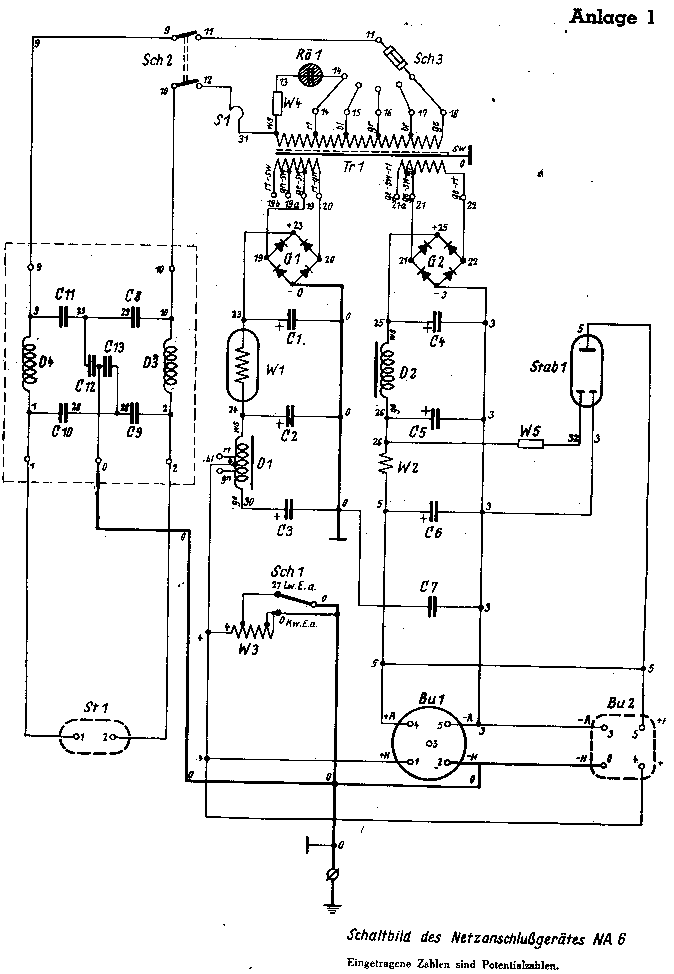
NA6 circuit diagram.
This is an early version of the more common NA6a.
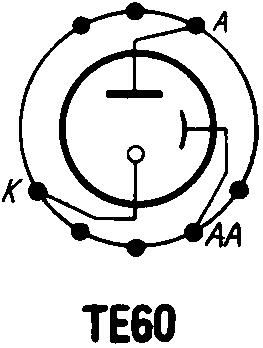
The component list gives very little details about the voltage
regulators, and no mention as to the type number of the 100V
stabilisator, but it now
seems to be similar to STV 100/60Z. The correct type number is TE60
and it is not found in normal handbooks, but it is mentioned in Piotr Mikolajczyk's Universal
Vade-Mecum (1960)
 |
 |
NA6a seen from rear and left side. Not too
original, but it is the best pictures I have so far
LA6NCA's page for NA6

LA6NCA Helge Fykse's unit (NA6?), somewhat different, but more
complete than mine.
Mains transformer to the left, Stab1 in the center, and W1
(Eisen-Wasserstoff = Urdox type
"constant current" resistor - see below) for filament
looking like a lamp to the right.
W1: (Eisenwasserstoffwiderstand 3...9 VOLT 2,5 A.+ - 3%,6 V als
mitte des Regelbereich,
Fa.: Osram) may be difficult to find, parameters may have
changed. An alternative is a
2,2...2,5A constant current circuit, or better - a 2,2V voltage
regulator set to 2,2A (2,5A)
current limit, see my modified unit. Modification should be made
such that no extra holes
are drilled or other changes made as far as possible.

LA6NCA's unit. The upper resistor on the rear is W2 (Anode
supply), below is W3 (KwEa/LwEa filament adjust),
with D2 (filament below).
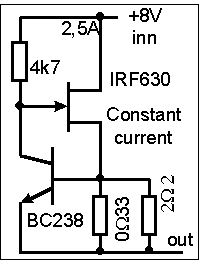
The constant current resistor W1 may be very
difficult to replace, an alternative would be to use a solidstate
replacement. A FET or darlington type power transistor with a
BC547 in a constant current circuit would be the easiest
alternative (provided it is used for DC). If the base voltage is
0,66V the shown resistors will make a current of 0,24A with
readily available resistors. This should be checked, and could be
adjusted for with another setting of W3 for +2,1...2,2V output
from the power supply with KwEa or LwEa being supplied. When I
started to try to use the NA6a in 1980, I wasn't so eager to use
as much as possible of the original circuit so I made my own
solid state version as seen under.
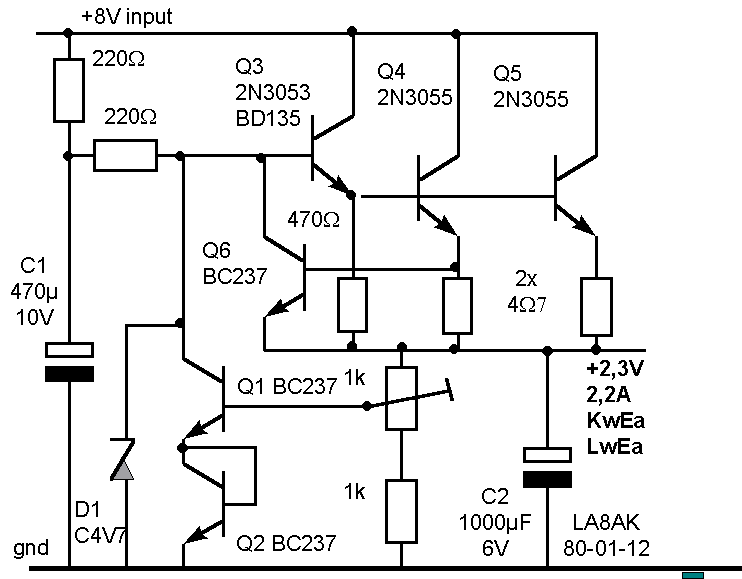
My solidstate version of constant current regulator includes
voltage regulator. The zener diode sets a maximum limit for the
output voltage. Since the output voltage is low it is better to
use diodes for voltage reference, and an emitter-base-junction of
a transistor is the best type of diode. The circuit may vary,
dependent on available power resistor values in emitters of power
transistors. I used some different circuit since I had some
different components which are unlikely to be available for
everybody else.
 |
 |
The modified NA6a with an OB2 in position
of the Fe OH -resistor.
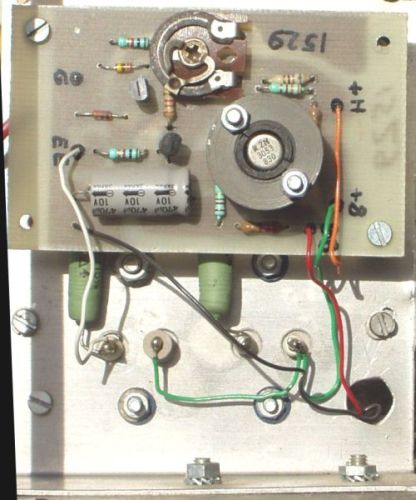
The voltage regulator for KwEa/LwEa inside NA6a
Considerations for using NA6/NA6a to supply different equipment using the same cable (note the different heater current).
 Torn.E.b +2V 0,8A +90V 10mA |
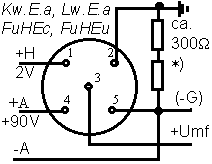 KwEa: +2V 2,2A ..+90V 20...25mA LwEa: +2V 1,8A .......+90V 20mA |
 FuHEc: +90V..20mA +2V... 1,9A |
 +2V 1,14 / 2,25A +135V 20...25/30...45mA -G: -4,5V (Sollwert) |
 +2V 0,89 / 1,14A +135V 25 / 40mA -G = -4,5V ? |
 .FuHEu: +90V...19mA +2V..1,8A |
Some silicon diodes are added (modification) for Torn.Fu.d2
(unfortunately not equal to Torn.Fu.b1 / c / f.
For Torn.Fu.b1 it is no load on negative voltage (pin 3), so a
high impedance negative voltage can be put here -
say internal impedance of 1000W or
higher, and no damage is done when +Umf=2V is fed back from KwEa,
LwEa, FuHEc etc
The anode voltage is limited to 90...100V, but it is not so bad,
the transceivers will still work.
If the positive voltage from Umf is detected to drive some
external equipment together with the first receiver, it is still
not impossible,
provided a diode is connected to +Umf inside the NA6..
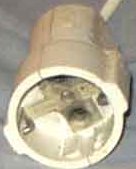
Mains adapter, see page 11d
Manual for NA6 is:
D(Luft)T.4401: Beschreibung und Betriebsvorschrift für
Netzanschlussgerät NA6. Gerät Nr. 124-4503A, Ln 27 466, März
1941. (available as copy from Gierlach, DL6VW in Köln)
Last update: 2004.04.04